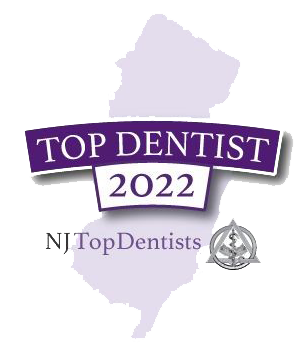
Does Chewing Gum Exacerbate TMJ Disorder?

This post was updated on 10-18-2018
Many of us chew gum to relieve stress or to freshen our breath. However, if you suffer from jaw pain, you might consider swapping Big Red for an Altoid and enrolling in a meditation course. Experts believe that TMJ and gum chewing may be linked. In some cases, chewing gum can cause jaw pain and exacerbate other symptoms that are associated with temporomandibular joint (TMJ) disorder. Here, Dr. Ivan Stein and the team at the Headache & TMJ Center of New Jersey explain why.
Overworking the Jaw Joint
To be clear, chewing gum is not the root cause of every case of TMJ disorder. However, it can contribute to ongoing pain because it overworks the temporomandibular joints. Avoiding gum could reduce chronic pain and discomfort, and even headaches.
Studies have been conducted to look at the link between chewing gum daily and suffering regular headaches. A small study published in a 2014 issue of Pediatric Neurology looked at a group of 30 youths — all gum-chewers — with chronic or recurring tension or migraine headaches. The youths were asked to stop chewing gums for a month. The headaches stopped in 19 of the participants, and were less frequent and severe in seven of them (the remaining four noted no change). Twenty of the participants that had noticed a complete or partial reduction in their headaches started chewing gum and all of them noticed the headaches returned within a few days to a week.
Other Tips for Reducing TMJ Pain
In addition to throwing out the gum, there are a few strategies to try to reduce TMJ pain.
Stress Management: For many people, stress causes chronic teeth grinding or clenching, which can lead to or exacerbate TMJ pain. Managing stress through yoga, meditation, therapy and exercise can lead to less teeth grinding and related pain.
Dietary Modifications: Constant crunching or chewing on tough foods is not good for the TMJ. Try to eliminate hard, crunchy foods and follow a diet of only soft foods that put less pressure on the jaw. Soups are a good option, and meats and vegetables can be cooked and pureed to a softer consistency.
Muscle Relaxers: Prescription muscle relaxers can relax the muscles in the jaw and face and help to reduce muscle spasms and the related twinges of pain.
Professional Intervention: If these conservative therapies fail to relieve pain and discomfort, it is time for a professional intervention with the team at the Headache & TMJ Center for New Jersey. We have a range of TMJ disorder treatment options, including orthotic therapy, laser therapy and ultrasound therapy. We can design a customized plan based around your unique needs.
Contact Our Team
To learn more about effective headache and TMJ treatment options, please contact our practice by calling (855) TMJ-DOCS or (855) 865-3627 today.

